Chapter 1: Dreaming of Lost Futures
So, Picture this! You hit that ‘ol power button, hear that gentle hum, and bam! There’s the Dreamcast swirl, twisting onto your screen and fading into those beautiful blue sky menus. It’s not just nostalgia hitting you, it’s something deeper. It’s a ache for a future that felt straight-up futuristic, even if it's totally stuck in the past now. For me, the Dreamcast wasn’t just a console. It was the console. My favourite. For me, Toy Commander was my little world.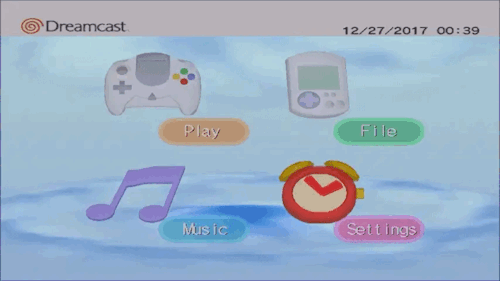 I’d pilot tiny toy planes through cereal boxes and blow up rubber ducks with crayon rockets. That stuff slapped so hard, and it burned into my brain.
I’d pilot tiny toy planes through cereal boxes and blow up rubber ducks with crayon rockets. That stuff slapped so hard, and it burned into my brain.
And yet, even as a kid, I remember it feeling... different. Like Sega was handing me a portal to a futuristic future. This wasn’t just my childhood memory, it was an early taste of what gaming could be, if it wasn’t afraid.
Chapter 2: Swirls & Splatters
The Dreamcast didn’t just play games. It was a complete mood on it’s own. Like, the damn console itself looked like it had been time-travelled in from some sleek alternate dimension- a bright white little thing with no hard edges and a glowing swirl, somewhere between a home appliance and alien tech. Sega’s American slogan was “It’s thinking.” Like, of course it was. That weirdness stuck.
Games like Jet Set Radio, Space Channel 5, and even the menus themselves all had this colourful, speculative optimism. 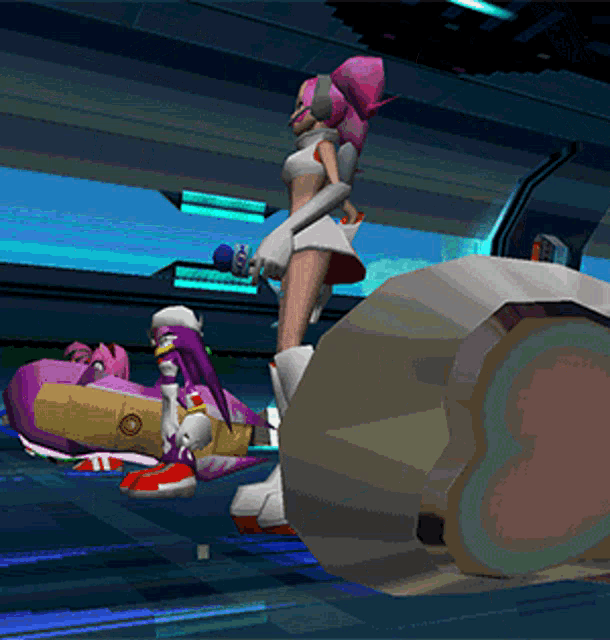
This was retro-futurism on full display folks. The kind that’s now resurfacing in vaporware playlists and Y2K edits, back when we thought the internet was magic and not just capitalism with a WiFi signal. The Dreamcast was drenched in that cultural moment, it had the late-90s weird optimism, right before the millennium clicked over.
Chapter 3: Roll the Tape
People love to dunk on nostalgia. They’ll say it’s regressive, sentimental fluff. And while I do agree mostly, I do think it has it’s place. Especially when it leads you to spaces that feel safe and weird and joyful. That’s what the Dreamcast did.
Shenmue was slow. I mean, really slow. You could spend a whole in-game day feeding a kitten, drinking canned soda, and playing Hang-On in the arcade. And somehow that felt actually revolutionary. Rez was a rail shooter, but it felt more like a rave in cyberspace. Space Channel 5 had you saving the world with your dance moves. And Toy Commander let you live out your best kid-on-the-carpet daydreams, driving toy trucks through the kitchen and parachuting army men in the bathtub.
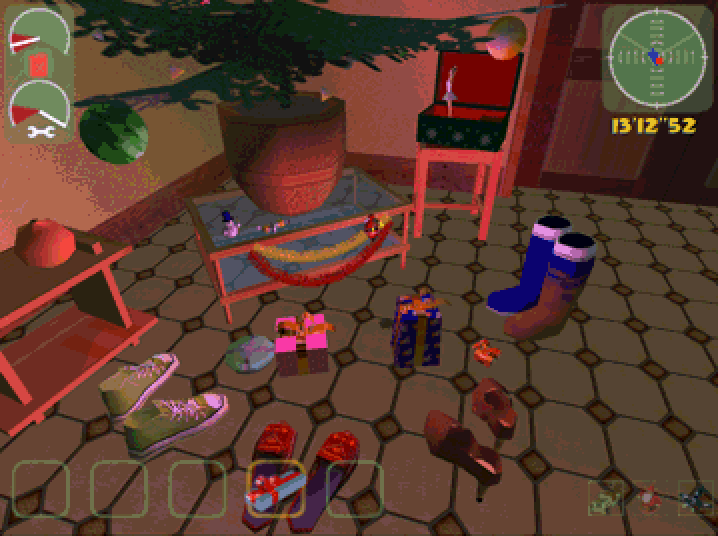
These games didn’t just resist realism, they actually built little utopias. And they let you breathe. That kind of calm isn’t just comfort. It’s rebellion. In this world of loud, stressful games built to hijack your dopamine, the Dreamcast’s futuristic chaos feels serene in comparison.
Chapter 4: Soundtrack of the Streets
The Dreamcast was Sega’s last stand. It had online play, weird dev tools, a modular controller, and a library of games that felt like pure experimentation. Sega said, “If it’s fun, do it.” And they did.
But the industry didn’t reward them. 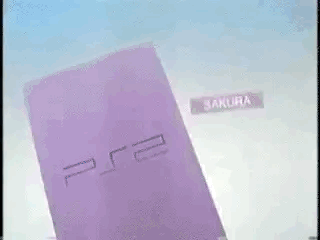
This is basically capitalist realism, the idea that we can’t imagine real alternatives anymore. And honestly, gaming kind of fell into that. The wild, weird energy that defined the Dreamcast and even the others of the AAA era got buried under franchises, sequels, and monetisation. What could’ve been the beginning of gaming’s golden age became a tombstone for everything too daring to sell.
Chapter 5: Bold Lines
But here’s the wild part: the Dreamcast never really died. It became legend to the small few who played and experienced it. A haunting, a sort of what-if. And now it’s starting to whisper to new generations.
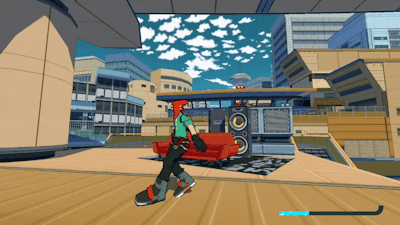
Younger devs are making Jet Set Radio-likes. Bomb Rush Cyberfunk is practically a gorgeous love letter. You’ve got the Spark the Jester series, which take up the mantle of the Sonic Adventure games. People are building games that look like they belong back on a CRT. We’re not just nostalgic for those games, we’re nostalgic for the future they promised. For a time when gaming felt imaginative, kind of naive, a little too in your face and colourful.
That’s hauntology. We’re haunted by the futures we were supposed to get, and the Dreamcast’s promised future felt better than this one, and that’s why it still hits hard. It reminds us of how things could’ve gone, of a path we almost took.
Chapter 6: The Crowd Gathers
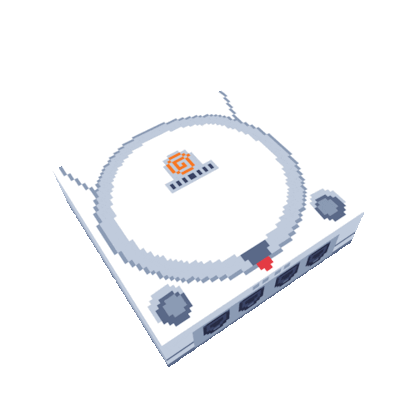
Because nostalgia, when it’s real, and it burns, isn’t about going backward. It’s about reclaiming direction. Saying: hey, remember when we believed in a weirder, more joyful world before late-stage capitalism? What if we did that again?
And we’ve got indie games are picking up the baton. They’re strange, and heartfelt. They don’t chase realism, they chase a specific feeling. And that... That’s Dreamcast energy.
Chapter 7: The Grand Finale
So yeah, the Dreamcast didn’t last. It was too weird, too joyful, too ahead of its time. Sega was losing money left and right. But in all the right ways. It wasn’t just a console. It was a vibe. A vision. A alternate timeline dressed up as a toy.
And that vision’s still here. Not just in dusty boxes and retro shelves, but in the games people are making, the art people are drawing, the music they’re spinning. The Dreamcast is thinking. Still.
Maybe utopia isn’t gone. Maybe it’s just paused... Waiting. That swirl logo spinning in the dark, waiting for us to press start.